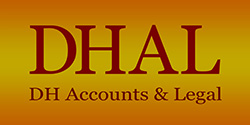VAT is one of the things all businesses need to be aware of. It’s important, for example, to understand what the VAT threshold is and when you need to register for VAT.
It’s also important to consider what benefits you might get from registering even if you are below the threshold.
Also you need to know who can not register for VAT.
What is VAT
Value Added Tax – the amount of tax added to the value of goods or services you buy. All VAT registered businesses must charge VAT on the goods or services they provide in the UK.
A business which is registered for VAT will charge VAT to its customers at a rate set by HM Revenue & Customs (HMRC). The rate will be dependent on what is being sold, though most goods and services are standard rate at 20%.
Compulsory VAT registration
-
You must register for VAT if:
-
your VAT taxable turnover is more than £85,000 (the ‘threshold’) in a 12 month period,
-
you expect to go over the threshold in a single 30 day period.
-
-
If you’re EU business selling to the UK, a ‘distance seller’, you have to register for VAT. There is no registration threshold for these supplies.
-
If you’re supplying digital services to consumers based in other EU countries, you must either:
-
register for VAT in each country where you’re supplying digital services, or
-
sign up for the VAT MOSS service.
-
-
If you’re a non-established taxable person (NETP), not based in the UK, so you’ll have to register for VAT if you make taxable supplies of any value in the UK, and account for UK VAT to HMRC.
-
You may have to register for VAT if you take over a business that’s already registered.
Voluntary registration
You can register voluntarily before you start to make taxable supplies, distance sales or acquisitions.
Why would I do that?
There are five reasons why you would voluntarily register:
1. Reclaim VAT
The main advantage is that you can reclaim VAT on most goods or services you buy for your business.
2. Serve VAT-registered businesses
If the clients you serve are mainly VAT-registered then it’s worth becoming one too. Your clients won’t see the VAT as an administrative chore as they will be in the habit of claiming back the VAT.
3. Access the flat rate VAT scheme
If your business has a low level of outgoings, you may stand to benefit financially from becoming VAT-registered, and in particular take advantage of the flat rate VAT scheme.
4. Zero-rated goods from EU
If you buy goods and services from an EU country to use in your business it will be ‘zero-rated’ (meaning no VAT is payable).
5. Increase credibility
You receive a VAT number, which you can show on websites and forms and increase your credibility to customers.
When should I not voluntarily register?
It’s not worth registering if you’re providing goods and services to customers who can’t reclaim the VAT. By charging VAT you needlessly increase your prices by 20 per cent.
Who cannot register
If your business only sells or supplies items that are exempt from VAT then you cannot register for VAT or recover any VAT you incur on purchases and expenses.
Examples of exempt goods and services include:
-
Insurance, finance and credit.
-
Physical education and sports activities.
-
Education, vocational training and other connected services provided by an eligible body like a school, college or university.
-
Health services provided by registered doctors, dentists, opticians, pharmacists and other health professionals.
You can find more information on GOV.UK .
Contact us
